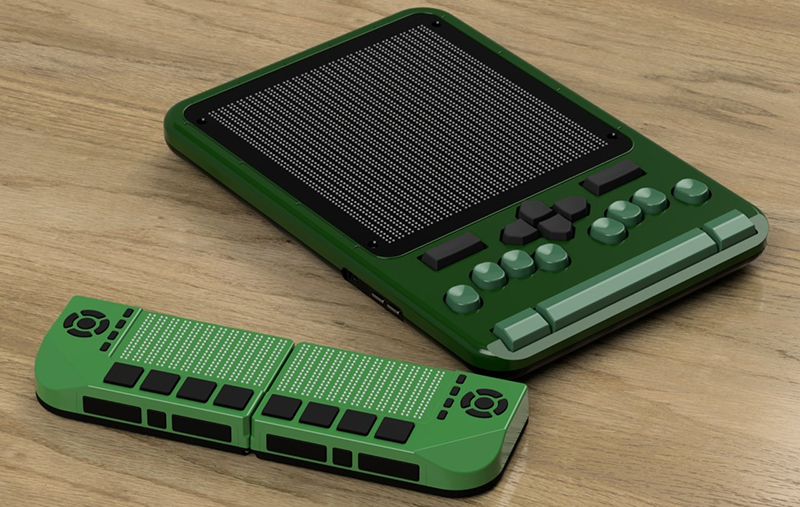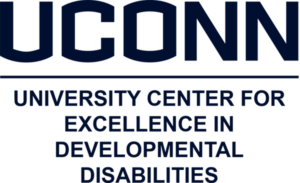Independence Science receives NSF grant to develop Braille device for laboratory science students – Purdue University News

By Steve Martin, sgmartin@prf.org
An educational technology company in Purdue Research Park has received a grant from the National Science Foundation to create a more inclusive laboratory experience for blind and deaf-blind students to prepare them for careers in STEM fields.
Independence Science has received a 1-year, $254,767 Phase I grant from the National Science Foundation to develop Sci-Dot, a multiline Braille device that collects and analyzes scientific data. Ashley Nashleanas will serve as primary investigator on the project.
Greg Williams of Independence Science said blind and deaf-blind students are put at a disadvantage if they are not able to view and analyze graphic representations of data in real time and at the same time as their sighted classmates. He also said being solely reliant upon audio output of data in a laboratory setting can be hazardous if surroundings are too loud. Audio output also is entirely inaccessible to deaf-blind students.
“Sci-Dot addresses these issues and improves upon current Braille displays that consist of only a single line of cells, which creates limitations in looking at data tables, monitoring data as it is collected and viewing graphical representations of the data,” Williams said. “Our multiline Braille device will allow blind and deaf-blind users to set up and collect experimental data independently and examine it graphically in real time along with their sighted peers.”
Independence Science will partner with Vernier Software & Technology, EQware, ViewPlus Technologies and Tactile Engineering, a startup based in Lafayette, Indiana, to develop Sci-Dot. Williams said Tactile Engineering has developed a design for electronic, refreshable Braille cells, which reduces their spatial footprint and cost and makes a low-cost, multiline display practical.
Williams said the SBIR program allows companies to pursue innovative projects to commercialize products that have a profound impact on those who use them but would not necessarily receive interest from typical funding sources.
“Without the funding support that Independence Science received from a previous NSF SBIR award, we would not have been able to develop and commercialize the Talking LabQuest, which has made a significant difference in the lives of blind students who have been able to participate with a level of independence previously unimaginable in lab courses,” Williams said. “Now, once again, with the support of the NSF SBIR program, we look forward to making the next great leap in STEM accessibility for blind students with the goal of inspiring the next, and hopefully much larger, generation of blind scientists.”
Independence Science has also received $50,000 from the Indiana Economic Development Corporation and Elevate Ventures to develop Sci-Dot.
About Independence Science
Independence Science is an access technology pioneer dedicated to changing how blind people view their own capabilities about pursuing scientific careers as well as helping to educate the sighted scientific community that blind persons can make significant contributions to the STEM fields. Where before blind students and scientists only had human sighted assistants available to them, Independence Science is helping the blind reclaim their laboratory independence. Through real inclusion and access to scientific laboratories, Independence Science is evolving the way society views science accessibility and helping blind students and scientists become more successful and equal participants within the scientific community. Interested persons and organizations can contact Independence Science at info@independencescience.com.
Writer: Steve Martin, sgmartin@prf.org
Source: Greg Williams, gwilliams@independencescience.com
CAPTION: Sci-Dot is a multiline Braille device that collects and analyzes scientific data to create a more inclusive laboratory experience for blind and deaf-blind students. Independence Science received a $254,767 grant from the National Science Foundation to develop the device. (Photo provided by Independence Science)

